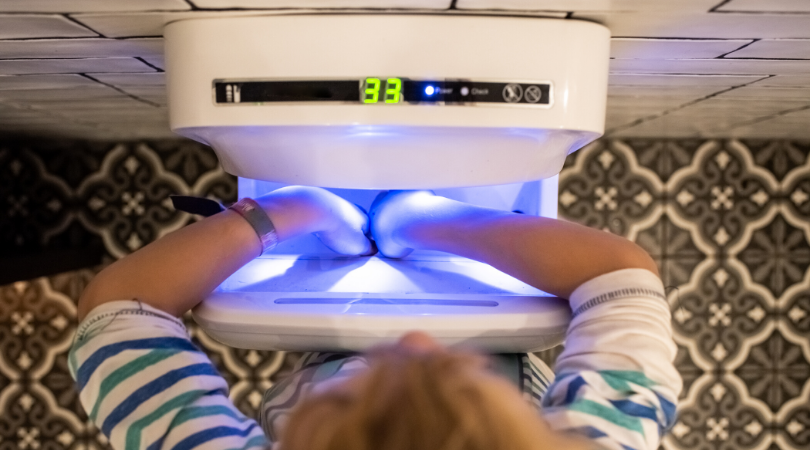Can hand dryers kill coronavirus and other COVID-19 myths busted
28 April 2020
Written byPhil MacKechnie

National Office
Please enter the office location/term above to receive results for your closest office as well as information matches
As the coronavirus pandemic has developed in recent weeks, the whole world has had to adjust to a new temporary way of life to help combat the disease and keep ourselves, and others, safe.
Whilst doctors, nurses and carers are at the forefront of the fight against COVID-19, there are an increasing number of claims being circulated across social media about the virus, how you may become infected and how you can keep yourself safe. The bad news is, a lot of these claims are incorrect, but they can be so well published that it can be difficult to know what is true and what is not. As a result, some of these claims could contribute to people becoming unwell.
To help combat these claims and keep the pressure on the UK’s healthcare services to a minimum, below we’re highlighting some of the common myths online to keep you and your loved ones safe.
Hand dryers are not effective in killing the new coronavirus, COVID-19. To protect yourself, you should wash your hands frequently with soap and water or, alternatively, use and alcohol-based hand gel. Once your hands have been cleaned, you should use either a hand dryer or paper towels to dry them.
Although garlic is a natural, healthy food that may well hold some health benefits, there is no evidence to suggest it will help prevent catching the coronavirus.
However, mental health charity, Mind does advise eating a healthy diet, including fresh fruit and vegetables, can help boost your mood, give you more energy and help you think clearly – which could be helpful for many whilst facing the challenges of self-isolation. Watch the video before more information about the relationship between food and your mental health.
Here at Radfield Home Care, we specialise in looking after older people and we continue to do so during the pandemic. However, perhaps one of the most common myths is that COVID-19 only impacts older generations or those with pre-existing illnesses. This is simply not true and people of all ages, all around the globe, have been infected with the coronavirus.
Although older people or those with pre-existing medical conditions are more likely to become severely ill, the World Health Organisation advises people of all ages need to protect themselves from the virus, for example by adhering to social distancing guidelines and good hygiene measures.
Despite the UK experiencing a rise in temperature as summer creeps closer, this does not mean we are safe from the coronavirus. Evidence so far suggests that the virus can be transmitted in hot and humid climates.
Equally, there is no reason to believe that cold and snowy weather will kill the virus.
Regulation for alcohol consumption remains the same in the UK, as it does not protect you against the new coronavirus. In fact, heavy consumption of alcohol can have an adverse impact on your overall health and can lead to an increase in health problems.
Much like with healthy food, monitoring your alcohol intake during social distancing measures is good practice to help you remain in good general health.
The best thing you can do to protect yourself and others around you from the coronavirus is:
Sources:
Get in touch with your local Radfield Home Care office today and find out more about the support we offer and the difference we can make.